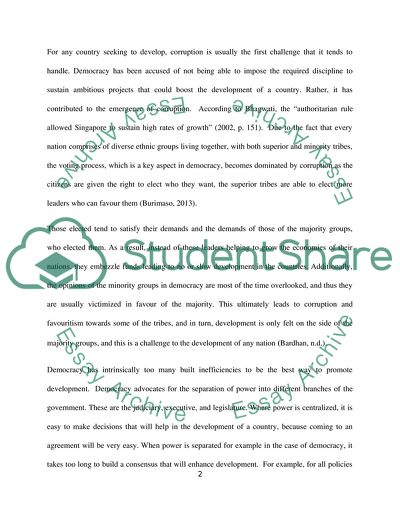Cite this document
(Democracy as a Hindrance to Development Literature review Example | Topics and Well Written Essays - 1500 words, n.d.)
Democracy as a Hindrance to Development Literature review Example | Topics and Well Written Essays - 1500 words. https://studentshare.org/politics/1804093-democracy-is-a-hindrance-to-development-do-you-agree
Democracy as a Hindrance to Development Literature review Example | Topics and Well Written Essays - 1500 words. https://studentshare.org/politics/1804093-democracy-is-a-hindrance-to-development-do-you-agree
(Democracy As a Hindrance to Development Literature Review Example | Topics and Well Written Essays - 1500 Words)
Democracy As a Hindrance to Development Literature Review Example | Topics and Well Written Essays - 1500 Words. https://studentshare.org/politics/1804093-democracy-is-a-hindrance-to-development-do-you-agree.
Democracy As a Hindrance to Development Literature Review Example | Topics and Well Written Essays - 1500 Words. https://studentshare.org/politics/1804093-democracy-is-a-hindrance-to-development-do-you-agree.
“Democracy As a Hindrance to Development Literature Review Example | Topics and Well Written Essays - 1500 Words”. https://studentshare.org/politics/1804093-democracy-is-a-hindrance-to-development-do-you-agree.


